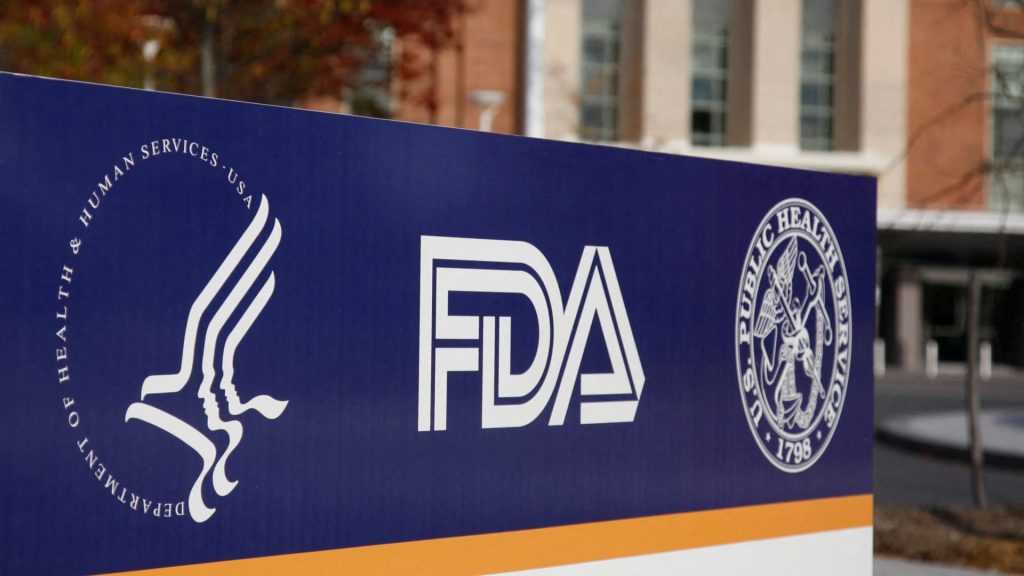In a surprising development, a critical meeting of the Vaccines and Related Biological Products Advisory Committee (VRBPAC), scheduled for March, has been canceled without any explanation. The meeting is pivotal for selecting flu strains for the upcoming influenza vaccines. This unexpected cancellation comes at a time of heightened concern regarding vaccination policies under newly appointed officials and amid a severe flu season in the U.S. The decision has raised questions about how vaccine manufacturers will proceed without the usual guidance from this advisory panel.
| Article Subheadings |
|---|
| 1) Canceled Meeting Raises Concerns |
| 2) The Role of VRBPAC in Vaccine Development |
| 3) New Leadership and Its Impact |
| 4) Current Influenza Situation |
| 5) Future of Vaccination Policy in the U.S. |
Canceled Meeting Raises Concerns
On March 13, the scheduled meeting of the Vaccines and Related Biological Products Advisory Committee (VRBPAC) has reportedly been canceled. This surprising announcement came from Dr. Paul Offit, a prominent member of the advisory panel, who revealed that he received an email notifying him of the cancellation. Although no reason was provided for this decision, it raises significant concerns regarding the operational transparency of the FDA and the implications for vaccine manufacturers. The absence of such meetings leaves many wondering about alternate arrangements for determining flu vaccine strains this year, especially considering the importance of timely and scientifically backed decision-making during flu seasons.
The Role of VRBPAC in Vaccine Development
VRBPAC plays a critical role in shaping the U.S. vaccination landscape by recommending which flu strains should be included in seasonal vaccines. Each year, the committee convenes before the peak flu season to evaluate scientific data and ensure that the vaccines developed are effective against the most current strains. This expertise is essential, given the constant evolution of influenza viruses. The meetings involve various stakeholders, including health officials and industry representatives who collaborate to outline public health strategies to mitigate flu outbreaks. The cancellation of such an important meeting means there is now a significant gap in the decision-making process that guides manufacturers in their production efforts.
New Leadership and Its Impact
The recent cancellation coincides with the early actions of Robert F. Kennedy Jr. as the new leader at the Department of Health and Human Services (HHS). Known for his historical skepticism of vaccines, Kennedy has proposed a review of the childhood vaccine schedule and announced the formation of a new commission called “Make America Healthy Again.” These developments have reignited debates surrounding vaccine safety and public policy, which may further complicate matters regarding vaccination recommendations. The committee’s cancellation raises questions about how vaccine strategies might be influenced under this new leadership, particularly with increased scrutiny on health recommendations.
Current Influenza Situation
As the cancellation unfolds, the U.S. is grappling with a particularly harsh flu season. According to data from the Centers for Disease Control and Prevention (CDC), the flu has led to approximately 910,000 hospitalizations since October. This alarming statistic indicates that this flu season is on course to be the most severe in over a decade. With the potential for continued strain on healthcare systems, the timing of the canceled VRBPAC meeting could have significant implications for public health. Without timely recommendations for vaccines, the efficacy of flu prevention measures could be compromised, putting additional pressure on healthcare providers and communities.
Future of Vaccination Policy in the U.S.
Looking ahead, the implications of this cancellation on vaccination policies are concerning. There is uncertainty surrounding what steps vaccine manufacturers will take in the absence of guidance from VRBPAC. Many in the medical community are calling for clearer communication and a rescheduling of the meeting to address pressing health concerns adequately. Additionally, the conversation surrounding vaccine acceptance may become even more polarized under the new leadership at HHS, potentially undermining public trust in vaccines. It will be vital for health officials and policymakers to navigate these challenges carefully to ensure that vaccination strategies remain effective and reliable.
| No. | Key Points |
|---|---|
| 1 | The VRBPAC meeting scheduled for March 13 has been canceled without explanation. |
| 2 | This meeting is critical for selecting flu strains for upcoming vaccines. |
| 3 | Dr. Paul Offit expressed concerns over the cancellation and lack of communication. |
| 4 | The cancellation occurs amid a severe flu season with high hospitalization rates. |
| 5 | New leadership under Robert F. Kennedy Jr. may influence vaccination policies significantly. |
Summary
The cancellation of the VRBPAC meeting raises alarms regarding the future of flu vaccinations in the United States at a time when flu season severity is high. As the new leadership under Robert F. Kennedy Jr. introduces policy shifts that may affect vaccination strategies, maintaining a cohesive and scientifically-backed approach is crucial. The healthcare community must address these changes transparently to sustain public confidence in vaccination efforts and ensure effective responses to health emergencies.
Frequently Asked Questions
Question: What is the Vaccines and Related Biological Products Advisory Committee (VRBPAC)?
VRBPAC is a committee that advises the FDA on vaccines and related biological products, particularly in determining which strains to include in seasonal vaccines.
Question: Why is the cancellation of the VRBPAC meeting significant?
The cancellation is significant because it disrupts the process for selecting flu strains, impacting the development of vaccines crucial for public health in addressing the flu season.
Question: How might new leadership at HHS affect vaccination policies?
New leadership, particularly from individuals who are skeptical of vaccines, may lead to changes in vaccination policies and recommendations, which could affect public confidence and health outcomes.
